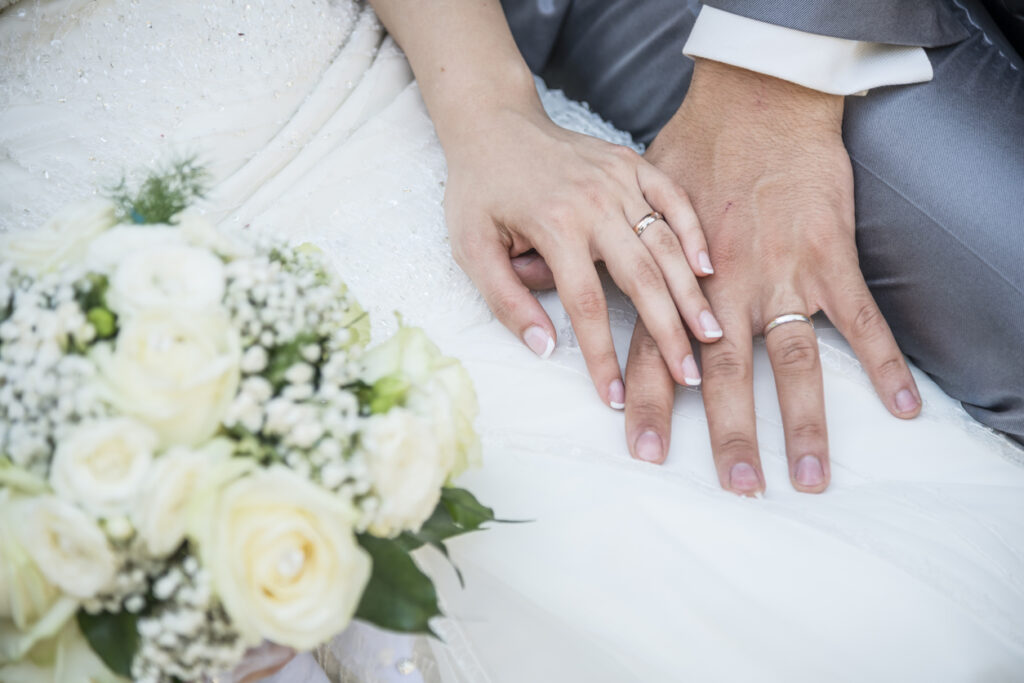Question: Why can’t a Catholic couple receive the sacrament of marriage at any church? My grandson and his fiancée chose Indianapolis as a midpoint of getting married, to help their family travel distances. They sought the ceremony at several churches but were declined because they were not parishioners. Our family is devastated and angry at the church. We thought any sacrament could be received at any church. (Location withheld)
Answer: It is theoretically possible for a Catholic to receive the sacraments in any parish church. However, some sacraments are intended to be ordinarily celebrated in specific churches, and marriage is one of these sacraments.
Canon 1115 of the Code of Canon Law tells us: “Marriages are to be celebrated in the parish in which either of the contracting parties has a domicile or a quasi-domicile or a month’s residence […] With the permission of the proper ordinary or the proper parish priest, marriages may be celebrated elsewhere.”
Translated into layman’s terms, this means that under normal circumstances Catholics should have their wedding ceremonies in a parish church where either the bride or the groom has an established permanent residence, called a “domicile” in canon law, or a part-time or long-term temporary residence (that is, a “quasi-domicile”) or at the very least, in the parish whose geographical territory either of them have been living in for one month.
This is in keeping with the notion of the sacrament being a joyful event within the community of the parish.
If a Catholic couple wants to be married in a church in which neither of them are parishioners – or at a shrine or chapel that is not a parish – they would need the permission of the appropriate ordinary (generally, the bishop or his vicar general) or the parish pastor.
As disappointing as this may have been for your family, your grandson was not “owed” this special permission to be married at a parish that was not his own, in a diocese in which he did not live.
Why would a priest or bishop withhold this permission? There are a few general reasons.
First, marriage is a very serious commitment that requires careful discernment and preparation. If a Catholic seeks to marry at a parish not their own, especially one that is at some distance from where they live, the parish pastor might have some legitimate concerns about whether the premarital preparations were sufficiently addressed.
Further, it is often easier to rule out any potential impediments to the marriage when the wedding is set to take place within the couple’s local community.
Additionally, some exceptionally beautiful churches and chapels are widely sought as wedding venues. These parishes might run the risk of becoming overly burdened by wedding requests from non-parishioners. To counteract this, such places often have strict policies of who is eligible to be married in their church or chapel.
It is possible for a Catholic to marry in a parish other than their own, but this takes extra planning and communication from all sides, and ultimately the necessary permission is up to the prudential decision-making of local pastors.
Question: We wear white for baptisms and first communions, and we get married in white. Are we supposed to always wear white for all of the sacraments? Does it really matter what we wear? (Daytona, FL)
Answer: No, white clothing is not strictly required for any sacrament, although in many cases wearing white can be a beautiful and fitting custom.
The only time white clothing is necessary in the context of a sacrament is during the rite of baptism itself, when the newly baptized is presented with a symbolic white garment with the words: “You have become a new creation and have clothed yourself in Christ. Receive this baptismal garment and bring it unstained to the judgment seat of our Lord Jesus Christ, so that you may have everlasting life.”
Even here, it’s worth noting that the ritual itself allows for this part to be omitted from the baptismal celebration “if circumstances suggest.”
Although it’s not mandatory in the Church’s law, wearing white for other major sacramental occasions is still a very appropriate practice, since it helps us recall our first and foundational sacrament of baptism.
Incidentally, even the white cloth – called a “pall” – that is draped over the casket at a Catholic funeral is meant as a reminder of the hope for eternal life that baptism gives us.
Additionally, in our Latin Catholic tradition, white is a liturgical color signifying joy. For instance, think of how the priest wears white vestments during the joyful seasons of Christmas and Easter.
White clothes are a scriptural allusion to Revelation 7:14, which described the redeemed souls in heaven as having “washed their robes and made them white in the blood of the Lamb.”
Jenna Marie Cooper, who holds a licentiate in canon law, is a consecrated virgin and a canonist whose column appears weekly at OSV News. Send your questions to [email protected].

